
Filter News
Area of Research
- (-) Energy Science (54)
- (-) Fusion and Fission (4)
- (-) National Security (20)
- (-) Quantum information Science (2)
- Advanced Manufacturing (2)
- Biological Systems (1)
- Biology and Environment (82)
- Biology and Soft Matter (1)
- Computational Biology (1)
- Computer Science (1)
- Materials (32)
- Materials for Computing (7)
- Neutron Science (59)
- Nuclear Science and Technology (1)
- Supercomputing (59)
News Type
News Topics
- (-) Artificial Intelligence (9)
- (-) Bioenergy (11)
- (-) Energy Storage (23)
- (-) Environment (24)
- (-) Machine Learning (8)
- (-) Mercury (1)
- (-) Nanotechnology (4)
- (-) Neutron Science (5)
- (-) Summit (3)
- 3-D Printing/Advanced Manufacturing (26)
- Advanced Reactors (2)
- Big Data (5)
- Biology (6)
- Biomedical (4)
- Biotechnology (2)
- Buildings (14)
- Chemical Sciences (4)
- Clean Water (3)
- Composites (2)
- Computer Science (16)
- Coronavirus (7)
- Critical Materials (1)
- Cybersecurity (13)
- Education (1)
- Exascale Computing (1)
- Fossil Energy (1)
- Frontier (1)
- Fusion (12)
- Grid (17)
- High-Performance Computing (6)
- Hydropower (1)
- Isotopes (1)
- ITER (2)
- Materials (6)
- Materials Science (7)
- Mathematics (1)
- Microelectronics (1)
- Microscopy (3)
- National Security (25)
- Nuclear Energy (19)
- Partnerships (5)
- Physics (1)
- Polymers (1)
- Quantum Science (5)
- Security (8)
- Simulation (3)
- Space Exploration (1)
- Transportation (22)
Media Contacts
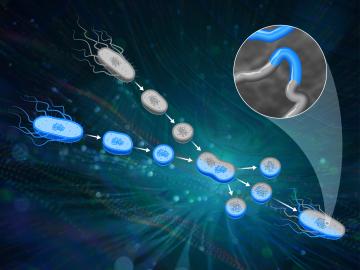
ORNL scientists had a problem mapping the genomes of bacteria to better understand the origins of their physical traits and improve their function for bioenergy production.
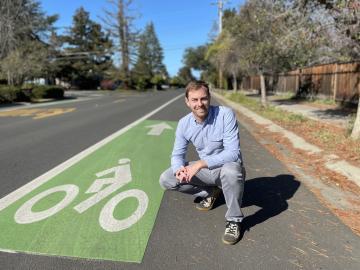
David McCollum is using his interdisciplinary expertise, international networks and boundless enthusiasm to lead Oak Ridge National Laboratory’s contributions to the Net Zero World initiative.
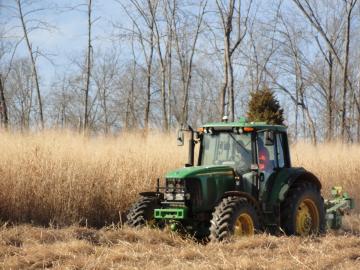
Energy and sustainability experts from ORNL, industry, universities and the federal government recently identified key focus areas to meet the challenge of successfully decarbonizing the agriculture sector

Burak Ozpineci started out at ORNL working on a novel project: introducing silicon carbide into power electronics for more efficient electric vehicles. Twenty years later, the car he drives contains those same components.
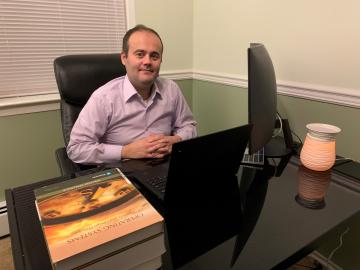
Having co-developed the power electronics behind ORNL’s compact, high-level wireless power technology for automobiles, Erdem Asa is looking to the skies to apply the same breakthrough to aviation.

Improved data, models and analyses from ORNL scientists and many other researchers in the latest global climate assessment report provide new levels of certainty about what the future holds for the planet
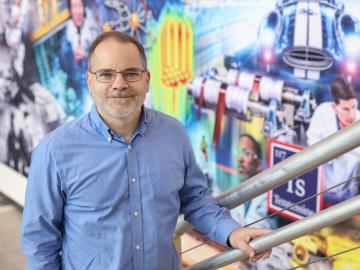
David Sholl is director of the new ORNL Transformational Decarbonization Initiative, working to elevate the lab’s prominence in decarbonization science and technology. Credit: Genevieve Martin, ORNL/U.S. Dept. of Energy.

ORNL’s Zhenglong Li led a team tasked with improving the current technique for converting ethanol to C3+ olefins and demonstrated a unique composite catalyst that upends current practice and drives down costs. The research was published in ACS Catalysis.
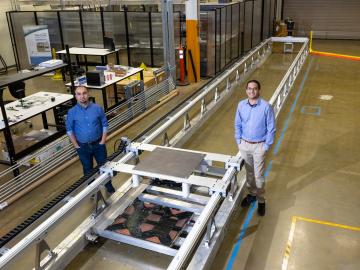
Consumer buy-in is key to the future of a decarbonized transportation sector in which electric vehicles largely replace today’s conventionally fueled cars and trucks.
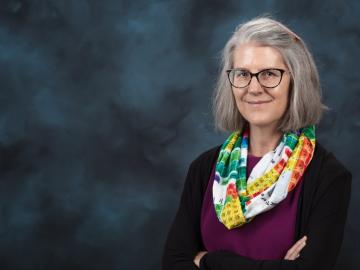
Deborah Frincke, one of the nation’s preeminent computer scientists and cybersecurity experts, serves as associate laboratory director of ORNL’s National Security Science Directorate. Credit: Carlos Jones/ORNL, U.S. Dept. of Energy


